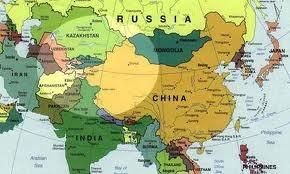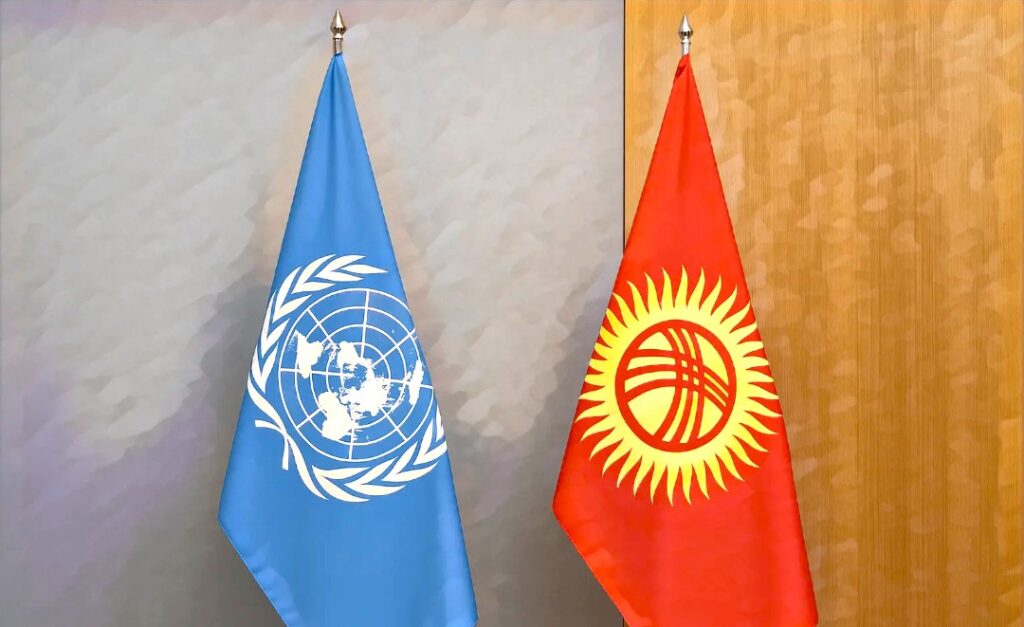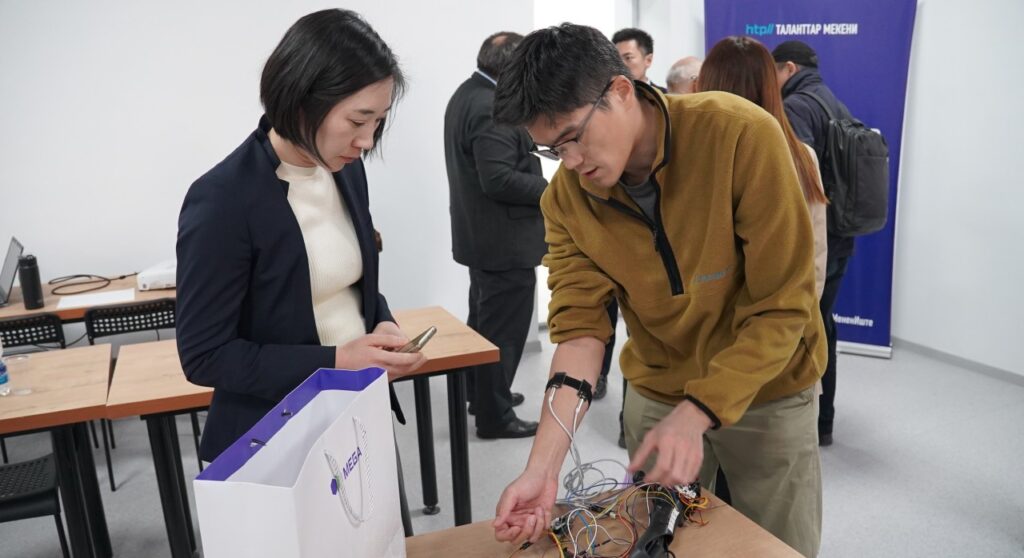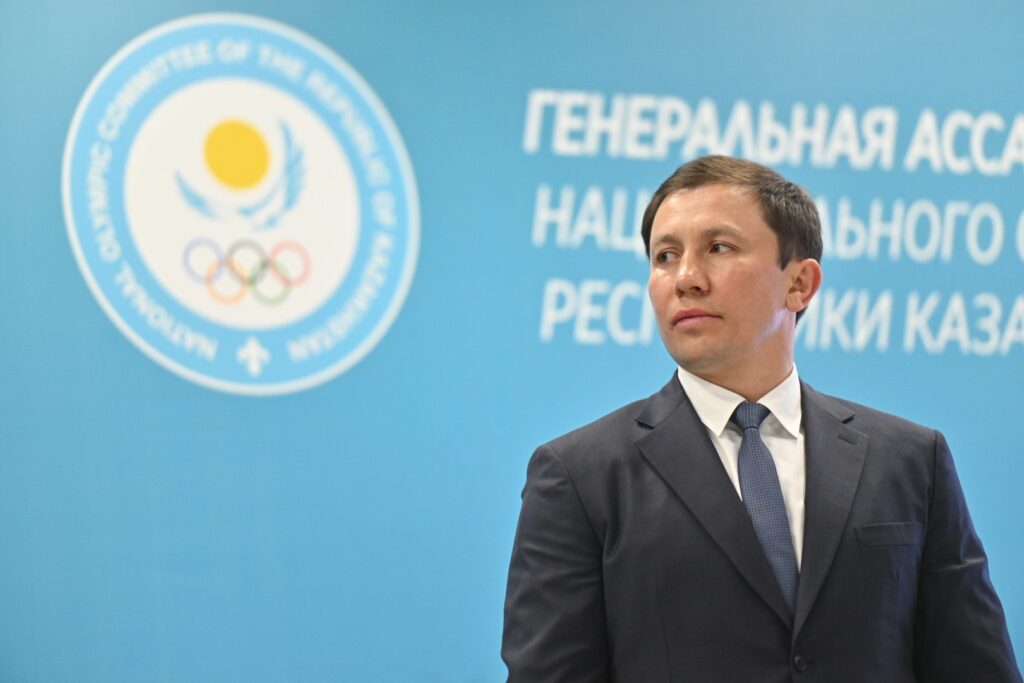BISHKEK (TCA) — The Times of Central Asia presents to its readers Stratfor’s Global Intelligence, a weekly review of the most important events that happened in the world — from Europe to Middle East to Russia to Central Asia to Afghanistan to China and the Americas.
The Week That Was
Brexit Referendum
The beginning of the week brought the fallout from British Prime Minister David Cameron’s agreement with Brussels and announcement of a referendum on an EU exit. On the one hand, the European Union has improved London’s chances of staying in the bloc. On the other hand, the United Kingdom has set a dangerous precedent for the rest of the European Union’s dissatisfied members to renegotiate their position. Expect to see a lot more referendums in the future and threats meant at extracting concessions from Brussels. Germany and Austria are already attempting to implement cuts in migrant benefits while Euroskeptical parties in France, the Netherlands and Italy in the core of Europe are promoting the idea of a referendum to renegotiate the terms of their membership in the union. Even if these parties do not assume control of their government, establishment parties will still have to address their demands and will use the referendum threat to push back on deficit targets, enable restrictions on the movement of workers, employ protectionist economic measures and so on. This dynamic has the potential to create more financial volatility in the Eurozone, while deepening the fragmentation of the European Union.
Syria’s Patchy Cease-fire
A cease-fire is now in place in Syria, with 97 rebel factions organized under the Saudi-backed High Negotiations Committee joining in at the last minute on Friday. This is still a patchwork agreement and, at the end of the day, riddled with holes. The rebel factions that have signed on in principle are doing so on the condition that Russia will stop bombing them. The cease-fire does not apply to Jabhat al-Nusra, which is spread across multiple locations on the battlefield in and around Aleppo, Homs and Qalamoun. This gives Russia ample room to conduct airstrikes on rebel positions while claiming that they are targeting Jabhat al-Nusra and the Islamic State. Turkey meanwhile will reserve the right to target Kurdish People’s Protection Units (YPG) in northern Syrian regardless of the cease-fire. At most, the agreement will allow Russia-backed Syrian government forces to reallocate resources toward areas under threat, such as the Islamic State presence in Khanaser, which is cutting off a vital loyalist supply line to Aleppo.
Russia-backed Reshuffle in Ukraine
On the other side of negotiations with the West, we observed how Russia is increasing control of its proxies in eastern Ukraine. The head of Donetsk People’s Republic, Alexander Zakharchenko, eliminated his rivals in a major reshuffle, allegedly at the behest of or at least with the approval of Moscow. Stratfor was waiting for something like this to happen following Russian presidential aide Vladislav Surkov’s recent visit to the region. This tells us that Zakharchenko is still Russia’s man in Donetsk. It also confirms that Russia has the means to dial up and dial down violence in eastern Ukraine to shape its negotiations with the West. Meanwhile, within the Kremlin, we can see that competence is being valued at least as much as loyalty as Moscow tries to manage its economic crisis. Putin has removed the head of state development bank Vnesheconombank (VEB) with someone he can trust from Sberbank. Sberbank has not requested state aid, while VEB is going to need a government bailout that could total $16 billion. Just as we saw with the replacement of Vladimir Yakunin, the former head of the state railways company, even Putin’s strongest loyalists are not immune to dismissal if they are costing the state too much money.
Saudi Give and Take
Saudi aid is also coming with strings attached these days. Riyadh can see that its foreign policy challenges are rising and checkbook diplomacy is naturally a powerful tool in the Saudi arsenal. But the Saudis also want to make sure they are getting a return on their investment. To this end, Riyadh boldly decided to cancel a $4 billion military aid package to Lebanon and give it Sudan instead. The message to Beirut and others in the region was clear: If you are the recipient of our precious petrodollars, then we expect you to look and act like a real ally. The Saudis had been working on Sudan for some time, using money to convince Khartoum to distance itself from Iran and thus cut key supply lines through the Red Sea for Iran to meddle in Egypt’s Sinai Peninsula and the Gaza Strip. And Sudan has delivered, demonstrating its commitment to Saudi Arabia by sending ground forces to Yemen. Even as Saudi aid is becoming more conditional, it is still going to have a difficult time trying to steer countries as deeply fragmented as Lebanon, where Hezbollah is a powerful force to be reckoned with.
Xi’s Widening Net
Chinese state media was filled with more than usual declarations of loyalty and effusive praise on President Xi Jinping this week after his recent tour of major press outlets. It was immediately followed by an announcement that China’s anti-corruption agency, the Central Commission for Discipline Inspection (CCDI), was preparing to investigate the Communist Party’s Ministry of Propaganda as well as the top government censorship organ. It is a certain sign that the overall political crackdown in China will intensify and be felt most acutely in China’s press this year, as China seeks to tighten control over information flows.
Beyond the front pages, China’s government ministries made several critical announcements on economic policy. From a joint press session of the Ministry of Finance, Ministry of Land and Resources, the central bank and top banking regulator came news that the central government was banning local governments from borrowing money for land acquisitions. Sales of land have traditionally been one of the major means by which perennially under-resourced local governments acquired budgetary revenue. Nonetheless, the acquisition of land has also become a key driver of local government debt and excess housing construction — both of which China would like to reduce over the course of the year. But as China trims bloated production capacity in sectors such as steel, local governments will be expected to increase their expenditures to match a 100 yuan worker retraining and relocation package from the central government, pressures will only increase on the development of an effective and equitable means to share the fiscal burden between the center and local governments, perhaps through expansion of last year’s pilot local bond program.
Progress in Argentina
Lastly, there was some positive news out of Argentina, which is getting closer to returning to international bond markets after a lengthy hiatus. NML Capital and Aurelius Capital Management said this week that they have struck a deal with Buenos Aires to settle their debt. Argentine President Mauricio Macri now needs to haggle with members of his predecessor’s Front for Victory party in Congress, where the opposition can delay a settlement by refusing to repeal the lock law, which prevents Argentina from offering different terms to bondholders not included in previous restructuring. A bargain is likely to result, enabling Argentina to eventually proceed with a $15 billion bond sale, but that negotiation may take some time as the opposition attempt to extract some concessions while they still can.
Full Articles
The Real Danger From Space Weapons
The militarization of space started long ago, but the true weaponization of space has yet to begin in earnest, at least publicly. Modern militaries depend on satellites for a number of vital functions. Orbital platforms act as a force multiplier for terrestrial operations and enable thermal image acquisition, weapons targeting through GPS and worldwide communications. Though space weapons have not yet been effectively deployed, the threat that they could be — and the widespread use of non-weaponized satellites for military purposes — has led countries to rush to create anti-satellite weapon technology as a deterrent.
Russia Can No Longer Afford to Buy Allies
Russia’s limited financial resources continue to hurt its ability to comfortably operate as it has in the previous decade. High oil prices, and resulting energy revenues, were largely responsible for skyrocketing economic growth since Russian President Vladimir Putin’s government took over in 2000. Prosperity enabled Moscow to spend liberally on its military, its economic development and, more subtly, its loans to countries in exchange for influence. However, oil prices have fallen, domestic industry has slowed and the West has placed sanctions on the country that have soured investment sentiment, together creating an economic crisis for Russia. The Kremlin must now make painful decisions to keep its economy floating, and everything is open to cuts, including foreign loans.
In Iran, Political Change at a Measured Pace
For the first time in Iran’s history, its two elected national government bodies, the 290-seat parliament and the 88-seat Assembly of Experts, are up for popular election on the same day. The broader public is calling for reform, and the Islamic Republic’s conservative establishment has taken precautions to protect its hold on power by barring the most ardently reform-oriented candidates from the race. But with sanctions gradually lifting and Iranian voters looking to accelerate their country’s economic opening, conservative candidates are adjusting their platforms to sound more and more like their reformist counterparts.
Iran: India’s Gateway to Central Asia and the Middle East
India wants to expand its influence beyond South Asia, and to that end it has turned to a seemingly unlikely partner: Iran. But Iran may be a more logical choice than it would first appear. Beyond history and culture, the two share extensive energy ties. Iran is India’s sixth largest supplier of oil, providing 250,000 barrels per day, roughly 6 percent of India’s crude oil imports. Both have also been negotiating on various energy projects, including improvements to the Chabahar Port, which exemplifies India’s desire to carve out a greater sphere of influence in Asia.
In China, Ulterior Motives in the Fight Against Corruption
Chinese President Xi Jinping is promising to ramp up the state’s anti-corruption campaign; however the move is not as altruistic as it may appear, and Xi has much to gain from the expansion. As 2015 ended, China’s Central Commission for Discipline Inspection (CCDI), the Communist Party’s top anti-graft agency, promised to massively expand the Chinese anti-corruption campaign in 2016. According to the agency, more than 100 inspections are to take place this year — far more than were conducted in any previous year. In addition, at least one anti-corruption inspection is to be carried out on each of the 280 state and Party organizations accountable to the central government by the time the 19th Party Congress starts in 2017. Though the Party’s intent to intensify the campaign had been well publicized, the actual means of expanding the campaign and its exact targets only recently become clear.
The Week Ahead
Iranian Election Results
We will be watching closely for final results from Iran’s parliamentary and Assembly of Experts elections. Early results released Feb. 27 and Feb. 28 showed reformists had won all 30 parliamentary seats reserved for Tehran. There is still potential for the parliamentary election to go to a second round — runoffs are common for contested seats in urban districts. Polls closed Feb. 26 after 16 hours, with two extensions necessary to accommodate high voter turnout. The large number of disqualified parliamentary candidates and the strong endorsement by Supreme Leader Ayatollah Ali Khamenei of the Guardian Council of the selected candidates indicates an attempt by the very top to bolster hardliners. Their hope is to balance against Iranian President Hassan Rouhani’s drive to liberalize the Iranian economy. However, a pragmatic coalition between conservatives and reformists still has the potential to attract a significant number of voters and continue the course that Rouhani has laid.
Normandy Talks
The next round of Normandy talks between the foreign ministers of Germany, France, Russia and Ukraine will be held March 3 in Paris. Few of the previous Normandy discussions produced concrete results but prior to this upcoming meeting German Foreign Minister Frank-Walter Steinmeier said that an understanding could be reached over the issue of holding local elections in the Donbas region of eastern Ukraine. Any movement toward consensus would be notable — these elections have been a source of dispute between pro-West and pro-Russia camps. This comes as cease-fire violations on the line of contact have been reduced over the past week and a prisoner swap between Ukrainian security forces and pro-Russia rebels took place on Feb. 26. However, broader political and security differences will likely complicate any meaningful resolution to the conflict for the foreseeable future.
Negotiating EU Migrant Flows
European Council President Donald Tusk is traveling between March 1 and March 3 to five countries: Austria, Slovenia, Croatia, Macedonia and Greece. The visits are an effort to build a European common strategy for the refugee crisis, backed primarily by the European Commission and Germany. Declarations from Brussels and Berlin were particularly critical last week to prevent unilateral national actions that threaten the common efforts to protect the European Union’s borders. They referred to the mini-summit organized by Austria with Western Balkan countries in Vienna, where leaders agreed to steps to reduce the flow of migrants toward Europe, coordinated without Greece. In reaction to the Austrian mini-summit, Greek Prime Minister Alexis Tsipras recalled the Greek ambassador from Vienna, and threatened to block future EU agreements on the refugee crisis if Greece is left isolated to become a “warehouse of souls.” Germany is still pushing for a European solution to the refugee crisis and therefore backing Greece. Tusk’s visit can be seen also as a signal to reassure Greece and encourage it to keep working to enforce the Schengen border.
In the common European Union approach to the refugee crisis, the highest priority at the moment is a deal with Turkey. Ankara was promised a stronger commitment from the European Union in talks about EU accession and a visa liberalization for Turkish citizens, in exchange for efforts to limit the influx of refugees into Europe and to cooperate with the NATO mission patrolling the Aegean Sea in gathering intelligence against migrant smugglers. An EU-Turkey summit will be held on March 7, when the European Union will assess Turkish efforts in their common plan. Before the summit, Tusk will also meet with the NATO secretary-general and the executive director of Frontex. He is reported to also be planning a visit to Ankara with European Commission Vice President Frans Timmermans before the summit, but the date has not been confirmed.
Libya’s Unity Government Vote
Libya’s House of Representatives is scheduled to vote on the U.N.-backed unity Government of National Accord on Feb. 29 in Jufra district. While nearly 100 House of Representatives lawmakers gave a statement of approval for the unity government Feb. 24, opponents blocked lawmakers from formally voting by physically blocking the voting process and shutting down the building’s electricity. U.N. Special Envoy for Libya Martin Kobler has been calling on lawmakers in the House of Representatives to formally pass the Government of National Accord in order for the government to legally take power. While the pro-unity components of the House of Representatives had likely obtained a majority approval for the agreement on Feb. 24, it is possible that recent successes in Benghazi by Khalifa Hifter’s forces against jihadists could sway certain lawmakers to vote against it on Monday since the agreement sidelines Hifter’s military role. Western countries have insisted that their participation in a military intervention in Libya requires an official invitation from the Government of National Accord. While limited numbers of foreign military special forces and advisors have already begun working with local Libyan partners in the fight against the Islamic State, an official Government of National Accord invitation for a foreign military intervention could significantly increase these forces.
Egypt-Japan Energy Cooperation
President Abdel Fattah al-Sisi will visit Japan on a state visit from Feb. 28 to March 2. Energy projects in Egypt will top discussions, as Japan’s expertise in renewables and advanced storage aligns well with Egypt’s need for energy investments into its insufficient, aging power grid. Specifically, al-Sisi and Japanese Prime Minister Shinzo Abe are expected to sign agreements related to a low-interest loan of 10 billion yen ($89.65 million) for a 20 mega watt solar power plant in the Red Sea city of Hurghada, as well as loans for three electricity distribution companies in Cairo and Alexandria. Lithium-ion and sodium-sulfur batteries will both be used in the proposed solar plant, following the global trend of renewables becoming a more competitive option as technology improves and costs fall. The Egyptian government will open a tender exclusively for Japanese companies for the construction of these projects. Considering Japan’s official growth target in securing 500 billion yen in revenue for its storage technologies by 2020, this tender will be an important achievement for Japan.









